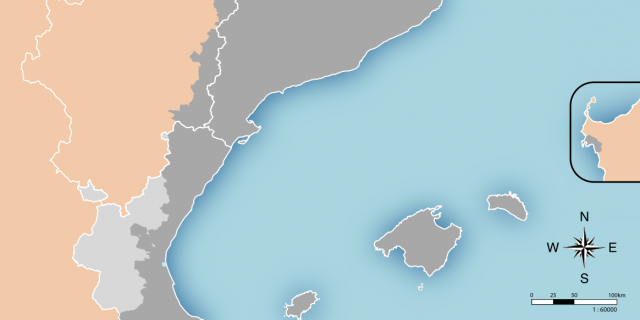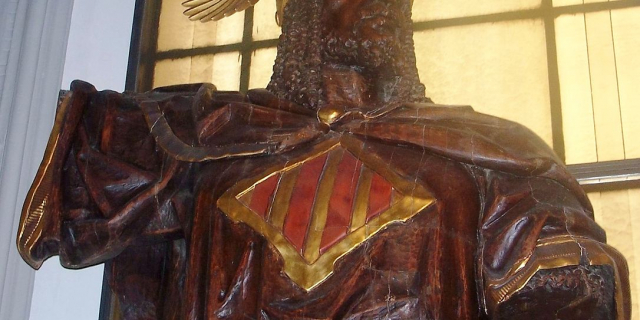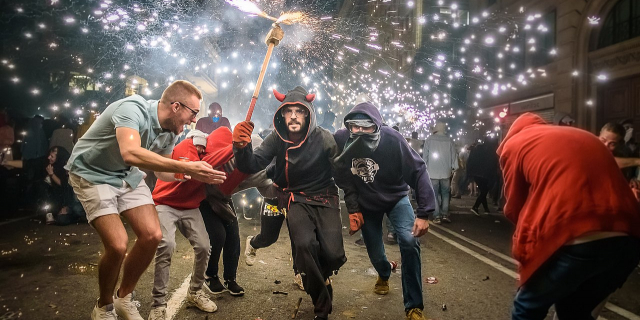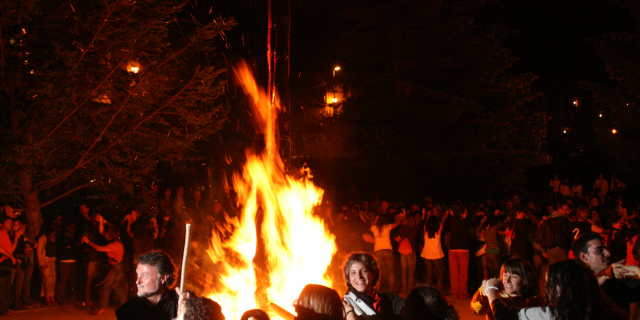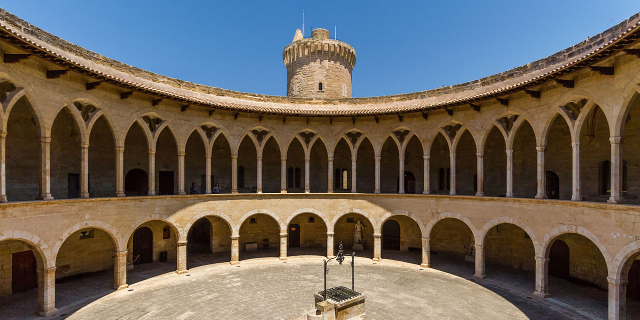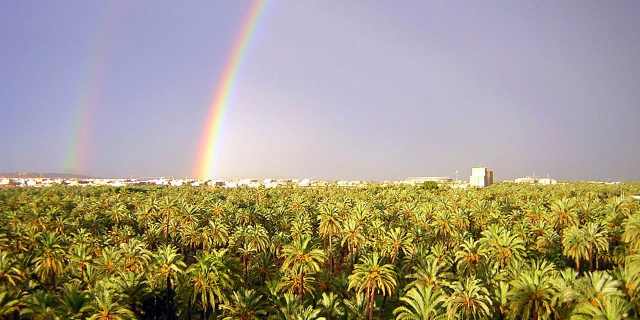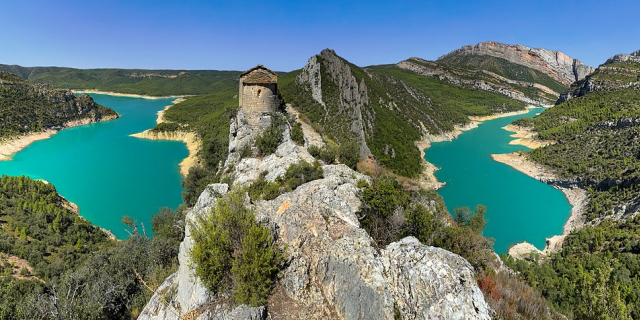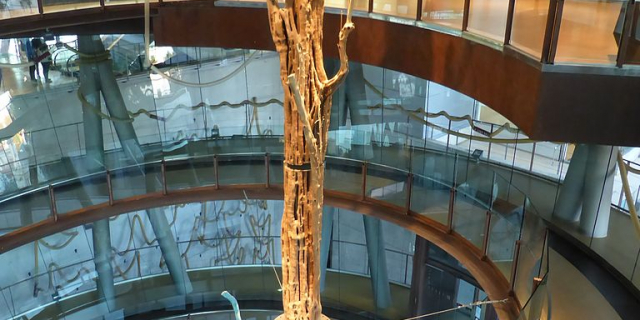Països Catalans
ﻕﺎﻴﺳ Països Catalans
Catalan Countries (Catalan: Països Catalans, Eastern Catalan: [pəˈizus kətəˈlans]) refers to those territories where the Catalan language, or a variant of it, is spoken. They include the Spanish regions of Catalonia, Valencia, the Balearic Islands and parts of Aragon and Murcia, as well as the department of Pyrénées-Orientales (including Cerdagne, Vallespir and Roussillon) in France, the Principality of Andorra, and the city of Alghero in Sardinia (Italy). In the context of Catalan nationalism, the term is sometimes used in a more restricted way to refer to just Catalonia, Valencia and the Balearic Islands. The Catalan Countries do not correspond to any present or past political or administrative unit, though most of the area belonged to the Crown of Aragon in the Middle Ages. Parts of Valencia (Spanish) and Catalonia (Occitan) are not Catalan-speaking.
The ...اقرأ المزيد
Catalan Countries (Catalan: Països Catalans, Eastern Catalan: [pəˈizus kətəˈlans]) refers to those territories where the Catalan language, or a variant of it, is spoken. They include the Spanish regions of Catalonia, Valencia, the Balearic Islands and parts of Aragon and Murcia, as well as the department of Pyrénées-Orientales (including Cerdagne, Vallespir and Roussillon) in France, the Principality of Andorra, and the city of Alghero in Sardinia (Italy). In the context of Catalan nationalism, the term is sometimes used in a more restricted way to refer to just Catalonia, Valencia and the Balearic Islands. The Catalan Countries do not correspond to any present or past political or administrative unit, though most of the area belonged to the Crown of Aragon in the Middle Ages. Parts of Valencia (Spanish) and Catalonia (Occitan) are not Catalan-speaking.
The "Catalan Countries" have been at the centre of both cultural and political projects since the late 19th century. Its mainly cultural dimension became increasingly politically charged by the late 1960s and early 1970s, as Francoism began to die out in Spain, and what had been a cultural term restricted to connoisseurs of Catalan philology became a divisive issue during the Spanish Transition period, most acrimoniously in Valencia during the 1980s. Modern linguistic and cultural projects include the Institut Ramon Llull and the Fundació Ramon Llull, which are run by the governments of the Balearic Islands, Catalonia and Andorra, the Department Council of the Pyrénées-Orientales, the city council of Alghero and the Network of Valencian Cities. Politically, it involves a pan-nationalist project to unite the Catalan-speaking territories of Spain and France, often in the context of the independence movement in Catalonia. The political project does not currently enjoy wide support, particularly outside Catalonia, where some sectors view it as an expression of pancatalanism. Linguistic unity, however, is widely recognized except for the followers of a political movement known as Blaverism, even though some of its main organizations have recently abandoned such idea.
ﻦﻋ ﺪﻳﺰﻤﻟﺍ Països Catalans
- ﺔﻠﻤﻋ يورو
- الاسم الأصلي Països Catalans
- ﺖﻧﺮﺘﻧﻻﺍ ﻕﺎﻄﻧ .cat
- ﺓﺩﺎﻴﻘﻟﺍ ﺐﻧﺎﺟ right

